Healing Immigrant Communities Through Mental Health Advocacy
Student Spotlight
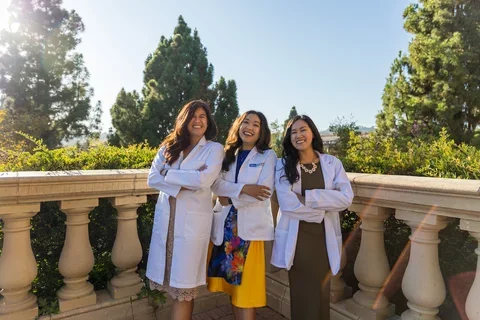
Meet Clara Đỗ Trần Nguyễn
Growing up in Orange County, California, medical student Clara Đỗ Trần Nguyễn saw incredible resilience reflected in her family and her community. Her parents and grandparents, refugees from Vietnam, modeled how to meet life’s challenges.
“My grandmother—my bà ngoại—has been such a strong force in my life,” Clara says. “She’s done so much to take care of her family, including moving across the world.”
Clara admired the strength of her family and community, but it also saddened her to notice how often life seemed to test the limits of that strength. They lacked access to healthcare and other essential resources that could lessen the burdens they faced as immigrants who’d uprooted their lives in hopes of finding new opportunities.
Watching them work so hard to overcome inequity and injustice, Clara yearned to support them somehow. She sensed ripples of pain, trauma, and vulnerability beneath their outward strength.
The desire to help stayed with Clara, and it would soon shape her future in medicine.
Fun Fact: Clara loves to nurture her creative side by crafting personalized gifts for her loved ones at the UCLA MakerSpace.
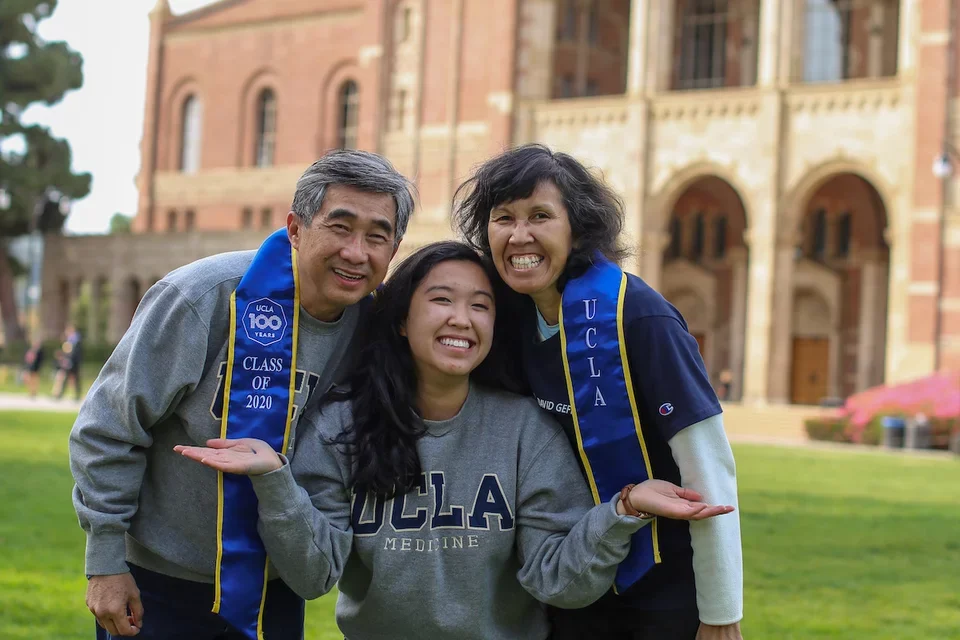
Resilience, Immigrant Parents, and First-Gen Kids
Clara earned dual degrees in Human Biology and Society and Asian American Studies as an undergraduate at UCLA. On top of her substantial coursework, she sought out opportunities to learn beyond the classroom. She connected with the local community, participating in mental-health advocacy for under-resourced and immigrant populations.
To develop her Asian American Studies honors thesis, she was inspired by her peers performing in Vietnamese Culture Night and her work with the California Healthy Nail Salon Collaborative.
“I interviewed children of nail salon workers, since they're a very prominent part of the Vietnamese community,” she says.
She felt a powerful connection to the people she interviewed. While her own experiences overlapped with theirs, the conversations still enriched her understanding of the complex relationships between immigrant parents and their first-generation children.
“There are very specific ways that Vietnamese-Americans show their love,” she explains. “They can be different from what we expect based on what we see in the media or what we learn about in books.”
Clara found deep meaning in the two-way exchange of listening to others’ stories and also sharing her own. When an opportunity arose to give her own TEDxTalk in partnership with UCLA, she knew exactly what parts of herself and her experience she wanted to discuss.
She talked about intergenerational trauma and what resilience means for a first-generation daughter of Vietnamese refugees. She talked about experiencing an abusive relationship and how to reframe distress and vulnerability as varieties of strength.
“I'm sure that the future holds more challenges for us, that we will know more hurt, more anxiety, more growing pains than we ever thought possible,” Clara said during the talk. “I'm also sure that a life in which we as a community and network of people celebrate that our hurt will make us more resilient is a life I'm excited to live in.”
Watch Clara’s TEDxTalk, “What is Resilience?”
Trauma, Healing, and the Power of Sharing
Clara continued gravitating toward mental health advocacy after she graduated. As a neuropsychological assessor with the UCLA Aftercare Research Program, she advocated for young patients with schizophrenia.
“I would often see my own experiences in my patients,” she says. “I realized that we heal in waves and we heal by listening to the stories of others, and we connect to our patients better by knowing that we're all growing together.”
After getting that valuable experience, she started the Program In Medical Education-Leadership & Advocacy (PRIME-LA) at the David Geffen School of Medicine at UCLA (DGSOM).
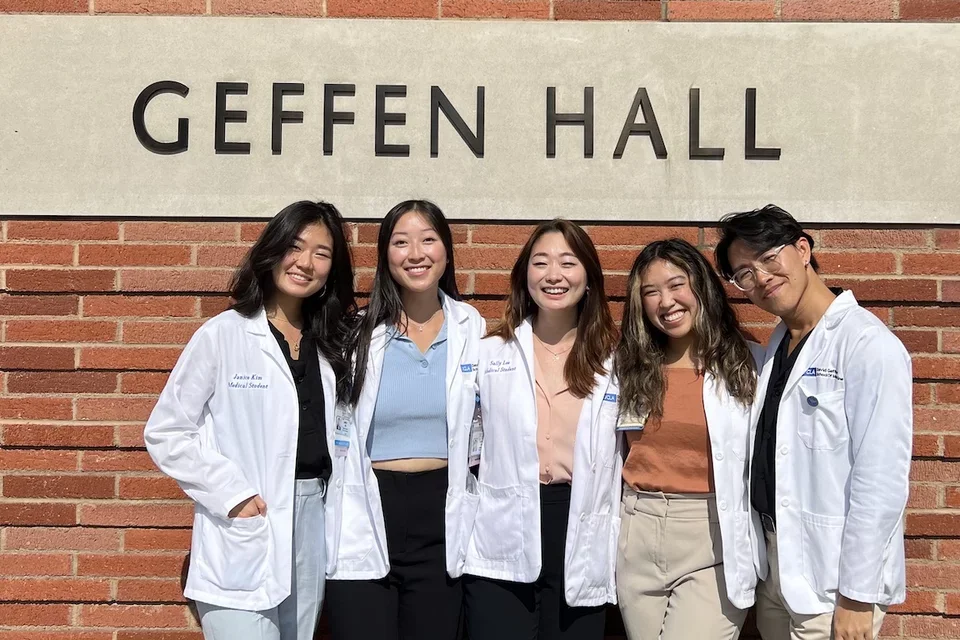
While she felt deeply passionate about supporting the mental health of Asian American and immigrant communities, she wasn’t yet committed to becoming a psychiatrist.
“I thought maybe I was too broken or had too much healing to do myself.”
She changed her mind during her emergency medicine rotation, when she connected with a patient who’d just lost a pregnancy.
“It made me think back to the experiences of the women in my family and also my own experiences,” Clara says.
She felt compelled to share some personal details, and it strengthened her connection with the patient.
They comforted each other the entire night, talking about pain, trauma, healing, and life in general.
“At one point, she asked me what type of doctor I wanted to be,” Clara says. “I told her I thought I wanted to be a psychiatrist, and even though we’d just met that day, she said that role would suit me well.”
Hearing the patient’s words as well as sharing the deep connection made Clara realize psychiatry with an emphasis on women’s mental health was the right path for her.
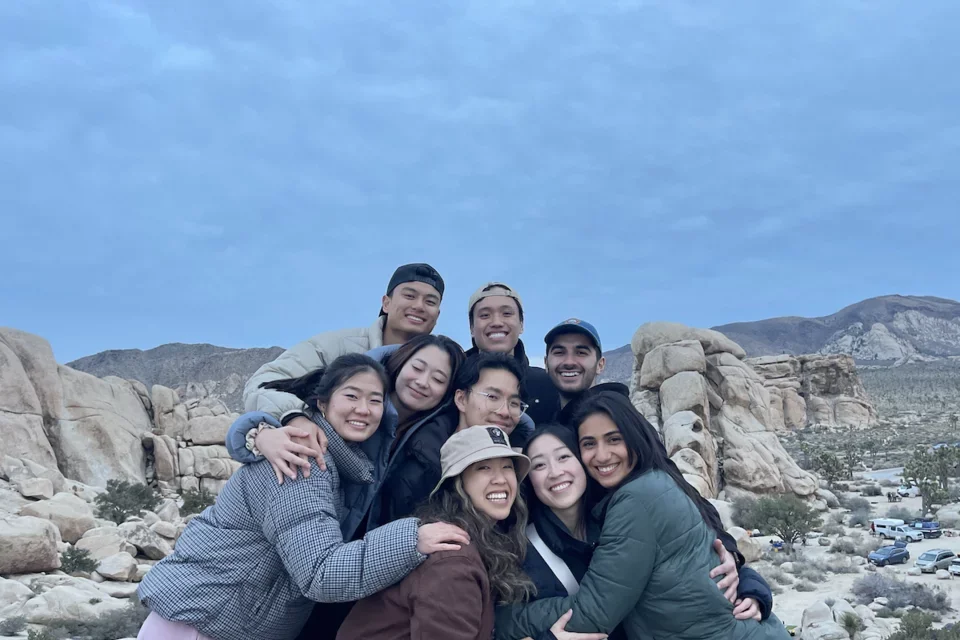
Challenging Structural Inequities
Being on the PRIME-LA track has enabled Clara to fully engage in community-focused mental health interventions and advocacy.
She’s especially excited about a research project she’s collaborating on with one of her mentors and the Los Angeles County Department of Mental Health.
“We’ve been working with patients and providers and asking them how they view reproductive health and reproductive justice as part of mental health care,” she says. “For many patients, these clinics might be their only touchpoint to the health care system, and we’re thinking about ways to incorporate counseling on parenting, pregnancy, and contraception into their visits.”
The goal, ultimately, is challenging the structural ways healthcare systems leave some communities out while also innovating strategies to reach patients in their most vulnerable times.
In addition to this important work, Clara engages with her DGSOM community through a variety of extracurricular activities and leadership roles.
She’s a Medical Student Council class representative, a member of the PRIME Council and the Gold Humanism Honor Society, and an active leader in the Asian Pacific American Medical Student Association (APAMSA).
The Future Dr. Clara Đỗ Trần Nguyễn
An overarching desire to support her family and community put Clara on the path to becoming a doctor. Now that she’s come so far in her journey, she can picture how she’ll provide that support with much greater specificity.
“I’m thinking about how we can push the status quo,” she says. “How can we challenge how systems are made? How can we intervene in unique and innovative places with our patients?”
She envisions herself as a psychiatrist working with vulnerable populations to increase access to affordable, culturally conscious, and patient-centered mental health care. Part of increasing access involves decreasing stigmas about mental health within her community.
“I want everyone to know that it's okay to need help sometimes. It's okay to be sad. It's okay to be anxious and to not know what's next.”
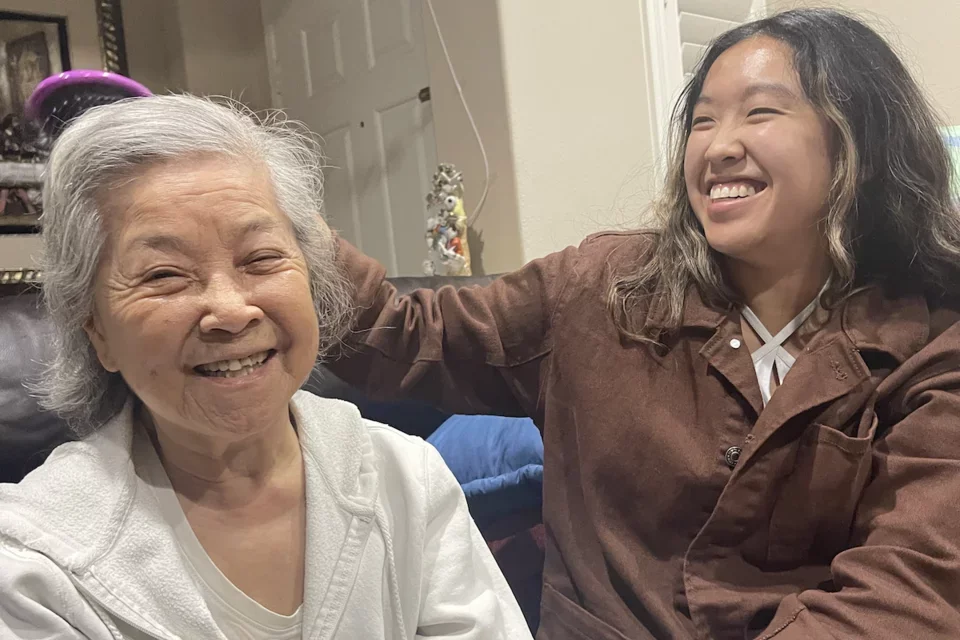
Thinking of all she wants to accomplish, Clara’s gratitude swells for her grandmother.
“I wouldn't be here working on this without her,” she says. “And I’m going to do my best to keep giving back.”
Her gratitude comes paired with compassion for her grandmother and everything she endured to build a better life.
“It’s part of my dream—to serve and connect with patients like my grandma one day.”



